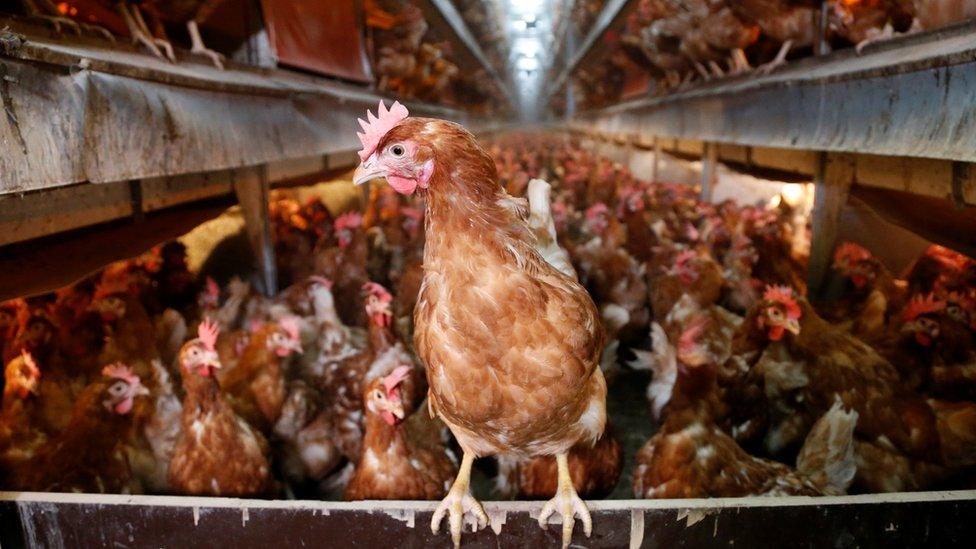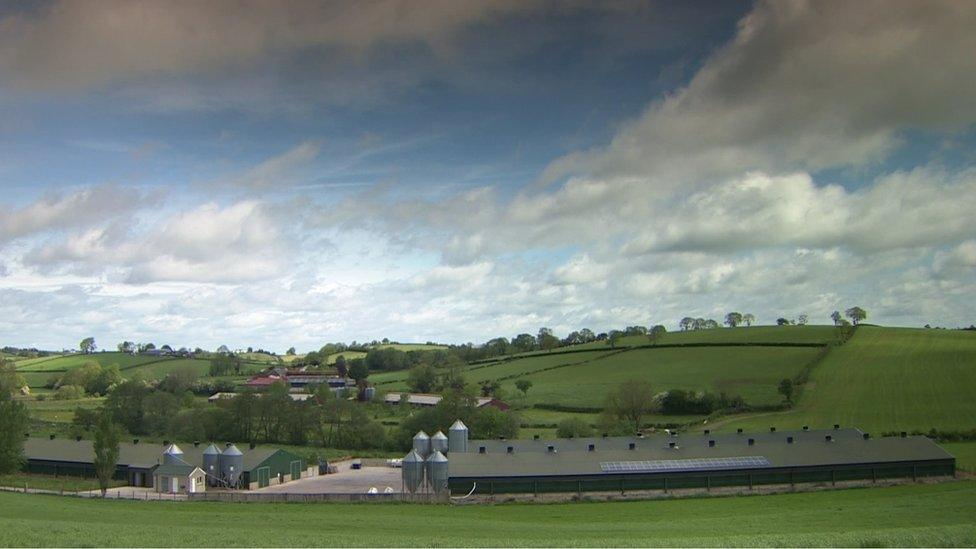RHI scheme 'not meant to subsidise poultry farms', court hears
- Published

The RHI scheme was not designed to subsidise poultry farming, a barrister said
A botched green energy scheme was never meant to subsidise Northern Ireland's poultry or mushroom industries, a court has been told.
A "fundamental, catastrophic error" had led to it making payments far in excess of what it intended, said a barrister for the Department for the Economy.
Half of the boilers subsidised through the Renewable Heat Incentive (RHI) scheme are in agriculture businesses.
About 900 are in poultry farms and 40 in mushroom production units.
A group representing boiler owners subscribed to the RHI scheme is challenging the Department for the Economy's decision to drastically reduce tariffs on the oversubscribed scheme.
They said the payments were guaranteed to them for 20 years.
The court has already heard how big expansion investments were made on the strength of the guarantees.
'Not in design concept'
But a barrister for the department told a court on Monday that the purpose of the RHI scheme had been simply to incentivise users to switch from oil or gas to biomass fuel.
The error, he said, had been to fail to see that the subsidy was higher than the cost of the fuel, creating a "perverse incentive" to run the boilers to increase payments.

About 900 boilers on the RHI scheme are on poultry farms
The court previously heard that agriculture businesses have a legitimate high demand for heat.
The department's barrister said that, having listened to arguments offered to the court so far, one might have thought the purpose of the scheme "was to subsidise poultry farming or mushroom growing.
"That was never part of the design concept," he said.
He said that the guidelines under which European State Aid approval for the payments was granted precluded "overcompensation".
And he claimed that a major driver for the 2017 regulations imposed in April, which cut the tariffs, had been to fix that.
At one point it was calculated that the RHI scheme could cost Northern Ireland taxpayers £490m over its 20-year lifespan.
Boiler owners have disputed that, claiming that the true cost could be between £60m and 160m.
Their barrister had raised the lack of scrutiny of the 2017 regulations by the Northern Ireland Assembly.
He said his clients believed the measures had been brought in hastily, were ill-thought out and were a knee-jerk reaction to intense media scrutiny of the issue at the time.
- Published7 November 2017

- Published23 October 2019
